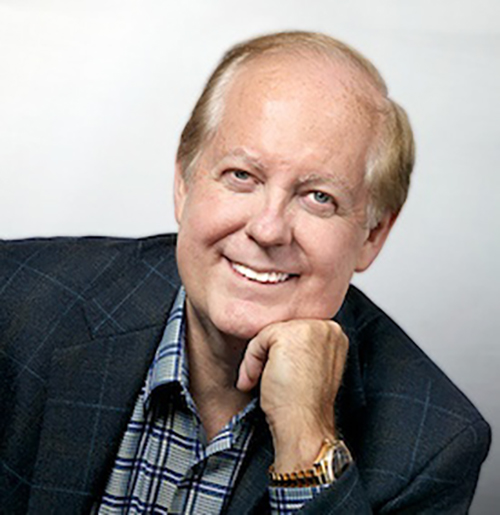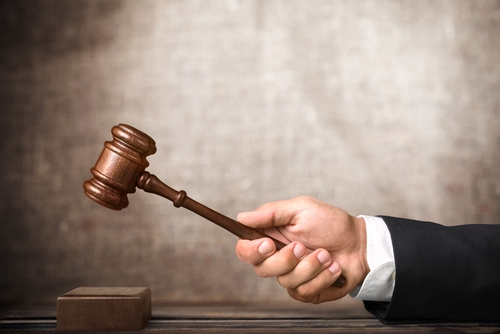Lessons for lawyers on jury selection from the courtroom and classroom
By Raymond J. McKoski
I teach a course titled “Jury Selection” at a Chicago law school. Instruction focuses on the goals, processes and constitutional foundations of the jury system.
In part, the class is designed to help future lawyers avoid mistakes I repeatedly witnessed during my 25 years as an Illinois trial court judge. Most of the faux pas committed during the jury selection process (or, as some would say, the deselection process) do not align with the constitutional, statutory or ethical rules governing selecting a jury. Rather, the missteps usually reflect a lawyer’s failure to observe common sense human interactions.
Common sense dictates that lawyers fare better with jurors who have formed a favorable impression of counsel. Favorable (and unfavorable) impressions begin with voir dire. And the ingredients necessary to build rapport with members of the venire are no secret. Vinson & Company, a juror and trial strategy research firm, identified the following points as key based on juror interviews: 1) how appreciative, patient and sympathetic counsel appeared to be; and 2) how good of a listener counsel appeared to be.
Unfortunately, some lawyers fail to exhibit these people skills during voir dire.
Active listening
Jurors are feeling human beings and not merely a bundle of biases and life experiences that counsel must sift through to eliminate unfavorable jurors.
For example, when a lawyer asks a panel of prospective jurors if anyone has suffered a serious injury and a juror answers that he broke his neck, the lawyer’s next words should not be “Did you file a lawsuit?” Compassion comes first, with at least an “Oh no” or “That’s horrible.” Then, counsel can transition to questions concerning how the juror is doing now, how and when the injury occurred, the treatment received, resulting physical limitations and whether a lawsuit resulted.
Listening to prospective jurors’ answers is necessary to obtain information upon which to base peremptory and for-cause challenges. But letting jurors know that you are listening is just as important as actually listening when it comes to building rapport with the venire.
Signaling attentiveness can be seamlessly accomplished through eye contact; incorporating part of a juror’s answer into the next question; facial expressions of surprise, concern or understanding; or even through simple verbal and nonverbal interjections such as “yes,” “um,” “oh” or a head nod.
Just as effortlessly, however, a lawyer can show disrespect or inattentiveness. The most blatant example, common among students and lawyers, is putting questions to a prospective juror and then turning their backs while the juror is answering, maybe to retrieve a document or check their notes. Wait for the juror to finish the answer and then, with an “Excuse me,” retrieve the paper.
Respect
If you mispronounce a juror’s name twice. do not try it again. Use the juror’s number or simply take a step toward the juror, look at the juror and ask a question.
Do not argue with a juror, no matter how ridiculous or offensive the juror’s answer. A simple response of “Thank you” or “Thank you for that information” or “Thank you for your frankness” can be used.
If a prospective juror has signed the juror questionnaire with a title before their name such as Dr. or Pastor, for example, use that title when addressing the juror. I have witnessed several lawyers referring to a juror as Mr. Smith only to be corrected by the juror with, “I am Dr. Smith.” Not a good start.
Avoid ‘T-shirt language’
Just as a lawyer must dress for the courtroom and would not think of selecting a jury while wearing a T-shirt, lawyers must also employ professional, courteous language in court.
During voir dire, counsel should avoid sloppy and lazy wording, slang and phrases more appropriate for the street—what I call “T-shirt language.” The most common miscue among students and new lawyers is referring to prospective jurors as “you guys.” More formal and gender-neutral substitutes for “you guys” include “everyone,” “jurors” “prospective jurors” or just “you.”
Also, limit the use of terms such as “kind of,” “like,” “literally” and “really.” If sloppy, improper or demeaning language sneaks into your questioning, please do better than offering a “my bad.” If you make any kind of mistake when dealing with jurors, they deserve an apology, not just an admission of guilt. And if you wish to argue that a witness has a “deep-seeded” dislike for your client, don’t. The proper phrase is “deep-seated.”
Diane Sawyer’s maxim
“There is no substitute for paying attention,” observed Diane Sawyer of 60 Minutes fame.
So when using a visual aid, make sure that every prospective juror can see it. If the jurors at the end of the jury box are half out of their seats at 45-degree angles straining to see the visual, don’t miss it. Similarly, if a prospective juror is leaning forward with a hand cupped around an ear, you might want to do something about the juror’s difficulty in hearing—at least if you are the one talking.
Here is an example of a memorable adverse consequence of failing to pay attention that occurred not during voir dire but during polling the jury upon return of the verdict: After a Washington state judge announced the jury’s “not guilty” verdict, defense counsel, likely through inattention and force of habit, requested that the jury be polled. When the first juror responded to the judge’s polling question by announcing that she disagreed with the not guilty verdict, the jury was instructed to resume deliberations. The jury later returned with a guilty verdict confirmed by a second poll of the jurors.
Diane Sawyer 2.0
Sometimes lawyers have important points to make but defeat their own purpose by, to put it kindly, imprecisely phrasing questions. Inquiring into the work and leisure activities of a prospective juror is necessary, but could the question below have formatted in a less demeaning manner?
Lawyer: Have you done anything else besides stay home and take care of your kids?
The first prospective juror who was asked the question apologetically answered no, akin to admitting some sort of deficiency. The second juror took a more self-protective approach by responding, “Isn’t being a homemaker and taking care of your children enough?” The lawyer then wised up and abandoned the question but could not erase from the prospective jurors’ minds the offensive nature of the inquiry.
Some poorly phrased questions can actually predispose a jury to interpret the facts in a way that’s adverse to counsel’s client. Take the question below, asked during jury selection in a criminal case:
Lawyer: Do you have any preconceived notions or opinions that the defendant is guilty, or can you wait until you hear all the evidence to reach that decision?
We all know what the lawyer meant. The presumption of innocence and proof beyond a reasonable doubt are sometimes all that counsel has to work with. But this is not the way to do it. The lawyer finally got the idea when a prospective juror responded that she would wait until she heard all the evidence and then sign a guilty verdict.
In conclusion
Politeness, professionalism and paying attention should come naturally to lawyers. So should showing appreciation for a juror’s sacrifice and commitment to the legal system. Come to think of it, no juror has ever told me that the lawyers thanked them too much.
Raymond J. McKoski is a retired Illinois judge currently serving as an adjunct professor at the University of Illinois Chicago School of Law. His book, Judges in Street Clothes: Acting Ethically Off-the-Bench, examines the ethical restrictions on the extrajudicial activities of judges.
ABAJournal.com is accepting queries for original, thoughtful, nonpromotional articles and commentary by unpaid contributors to run in the Your Voice section. Details and submission guidelines are posted at “Your Submissions, Your Voice.”
This column reflects the opinions of the author and not necessarily the views of the ABA Journal—or the American Bar Association.

.jpg)




